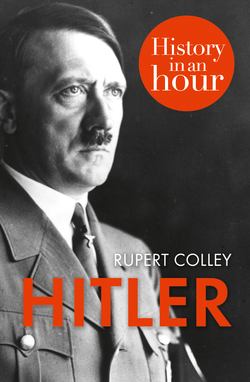Читать книгу Hitler: History in an Hour - Rupert Colley - Страница 8
На сайте Литреса книга снята с продажи.
ОглавлениеHitler the Dropout
Suffering bouts of depression and with his aunt’s money running out, Hitler moved from one impoverished accommodation to another and spent his last three years in Vienna in a men’s hostel. For a while he struck up a deal with a fellow guest, Reinhold Hanisch; while Hitler painted Viennese street scenes, Hanisch sold them and the two would split the profit. But while Hanisch managed to sell, Hitler’s commitment to painting a picture a day faded and the agreement ended acrimoniously.
Despite having lived in Vienna for six years, Hitler had made few friends, certainly none that he talked about. Acquaintances and ex-room-mates at the hostel remembered him not simply for his anti-Semitism, which was commonplace in Vienna at the turn of the century, but for the extent of his fanaticism against Jews, religion, priests, the Habsburg monarchy, the aristocracy, the middle classes and a number of other pet hates. He preached, with alarming fervour, the cause of a pan-Germany, the unification of all German-speaking people as one state. He would frequent cafés and sermonize to whoever was unfortunate enough to be caught within his orbit. He showed no interest in women, believing that men should remain celibate until the age of twenty-five.
Hitler decided to move to Germany, but had to wait in Vienna until he received his father’s small inheritance, which was due on his twenty-fourth birthday – 20 April 1913. Once secured, he was able to leave Vienna and, in May 1913, start afresh in a ‘true German city’, the city of Munich, the capital of Bavaria, an independent federal state within Germany with its own king, King Ludwig. But Hitler’s move to Bavaria was also motivated by the desire to avoid conscription into the Habsburg army. Hitler was not a draft dodger but he despised the Habsburg monarchy so much he had no wish to serve in its army.
His life in Munich differed little from that in Vienna – lacking work, money and friends, living in hovels and wandering aimlessly around the city, admiring the architecture and striking up one-sided conversations in cafés. But Hitler looked back on his time in Munich with fondness, calling it ‘by far the happiest time of my life’. In February 1914, the Habsburg army caught up with him; put him in front of a military tribunal in Salzburg, only to declare him unfit for service.
